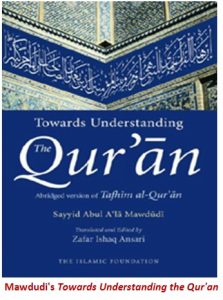Letters to the Editor
Q: I will always be indebted to you for keeping me away from Bid’a and Shirk and all the evils in our society. YMD has helped me immensely in following right beliefs. I have some doubts regarding the following points. This will be of great help for me if you clear my doubts. Is there any mention of Dua Yaseen being recited after Surah Yaseen in Prophet’s (pbuh) traditions?
YMD
There is no hadith which recommends a particular Du`a to be recited after Surah Yasin, or any other Surah, or even after the recitation of the Qur’an.
Q. Are references cited pertaining to Ahadnama?
YMD
We do not know what this ‘Ahadnama’ is.
Q. Will ablution be still valid after clipping nails, trimming moustache or beard?
YMD
No, ablution would be nullified.
Q. Is it necessary to change place after Fard prayers?
YMD
It is not absolutely necessary to change places after the termination of obligatory Prayers. It is only preferable. However, more preferable is to do the Sunnah at home which was the practice of the Prophet and his Companions.
 Q. Can Du’a be made after each Sunnah and Nafil prayers – or only after Fard prayers?
Q. Can Du’a be made after each Sunnah and Nafil prayers – or only after Fard prayers?
YMD
Supplications can be made at any time, especially after every good act. Therefore, they can be made after the obligatory Prayers, as well as after every Sunnah or Nafil Prayers. However, the recommended way would be not to spend a lot of time in supplications, especially if it is at the cost of recitation of the Qur’an, or study of hadith, etc.
One may – especially if he is young – devote more time to study of religious texts than he would to supplications. But, if someone is already devoted to studies, and still has time to make frequent and long supplications, then he might do it.
Q. Can we start ablution after Adhan has started?
YMD
Yes, why not?
Q. Can we answer to Adhan while making ablution?
YMD
Yes, you can.
Q. Should we also say Darud while replying to Adhan’s ‘Ashhadu anna Muhammad ar Rasoolullah’?
YMD
The Sunnah is to repeat the adhan words with the muedhdhin. Nevertheless, there is nothing wrong in reciting the peace formula, after the words of the muedhdhin: “I bear witness that Muhammad is a Messenger of Allah.”
Q. Is Du’a after Fard Salah with Imam in congregation Bid`ah?
YMD
Muhammad Shafi` Deobandi, the former Hanafiyy Mufti of Pakistan has written in his “Jawahirul Fiqh” that the Prophet did not make congregational supplication after the obligatory Prayers with the Companions behind saying Ameen.
The Prophet used to turn to the congregation facing them, after his Salam. He stayed for a while doing his personal adhkaar, saying supplicatory words, and then got up and went home. He did not even supplicate for himself with raised hands after the Prayers.
Q: I have a doubt regarding the authenticity of ‘In the Shade of the Qur’an’ by  Sayyid Qutb. I find this Tafseer very interesting, but recently a friend forwarded a few articles on Sayyid Qutb, which cast doubts on his caliber as a scholar. Now I do not know if I should continue with his Tafseer. I see that you quote him in the Qur’anic commentary that you publish every month in your magazine.
Sayyid Qutb. I find this Tafseer very interesting, but recently a friend forwarded a few articles on Sayyid Qutb, which cast doubts on his caliber as a scholar. Now I do not know if I should continue with his Tafseer. I see that you quote him in the Qur’anic commentary that you publish every month in your magazine.
Safoora Hunaiza,
On Email
YMD
From a certain angle, Fi Zilal al-Qur’an by Sayyid Qutb is one of the finest of commentaries ever written. What you will find therein, you will not elsewhere. Whereas, what you will find in other commentaries, you might also find in Fi Zilal al-Qur’an.
Now, the work runs into thousands of pages. Is it possible for any human to write so many pages and commit no error? Errors, therefore, are expected.
But, which commentary has no errors in it? Here is one which is recommended by some people as the most trustworthy. But it has so many weak reports and Israeli stories. Here is another, which is considered by some people as the most correct. But it is full of ambiguities. Here is a third, which is said by some to be the most precise. But it is too short and brief to be recommended as a commentary that answers most of the reader’s questions.
Thus there is no commentary which is not, from some angle or another, without shortcomings. If one is very choosy, he will be left with none to study.
Yet, we may ask, is that how you judge commentaries? Is your criterion right? Is it possible that your own knowledge is so limited, the vision so narrow, and the field of activity so restricted, that no Tafsir work fits into them. Maybe, it is the scheme of your life, religion and philosophy that doesn’t leave room for development of thought. Maybe you are at cross-purposes with the Ummah: the great body of it; the earlier ones and the latter ones; the eastern ones and the western ones; the ones of this school and the ones of that school. They all made their own tiny efforts to bring out a certain aspect of truth and understanding to fore. They were all good of intentions, all broad-minded. But, yourself not being so, to the extent Islam itself would allow, you cannot accommodate anyone in your tiny boat. Perhaps you are afraid your boat captaincy will be lost. So you throw overboard this one, that one, and everyone. Ultimately you will be left alone, if you are not already alone, and the pages of history might not even give you a line as an aberration while the Ummah, one Ummah, the great multitudes, the Jama`ah, moves on.
Yet the errors remain. Maybe one over every hundred pages. But what sane mind will reject the whole for a few errors? Errors, that you need a microscope to spot: if your judgement be correct.
 Mawlana Abul A`la Mawdudi, who wrote for the Urdu readers, and Sayyid Qutb for the Arabic readers, and now both for the English speaking readers through translations, have done for old Tafsir works what the traditional scholars failed to achieve. They evoked interest in the Qur’an, Qur’anic commentaries, and Qur’anic related knowledge. The earlier commentaries that were under neglect for a few generations, suddenly started selling well in the markets. There isn’t any doubt, after Allah (swt) had decided to enliven the hearts of some believers, that the credit for the renewed interest in old commentaries and their republications in our times, goes to these two writers. Those who will not say thanks to the people, will not say thanks to Allah (swt).
Mawlana Abul A`la Mawdudi, who wrote for the Urdu readers, and Sayyid Qutb for the Arabic readers, and now both for the English speaking readers through translations, have done for old Tafsir works what the traditional scholars failed to achieve. They evoked interest in the Qur’an, Qur’anic commentaries, and Qur’anic related knowledge. The earlier commentaries that were under neglect for a few generations, suddenly started selling well in the markets. There isn’t any doubt, after Allah (swt) had decided to enliven the hearts of some believers, that the credit for the renewed interest in old commentaries and their republications in our times, goes to these two writers. Those who will not say thanks to the people, will not say thanks to Allah (swt).
In particular, Sayyid Qutb dealt with modern pagandom in Fi Zilal al-Qur’an in the manner Imam Ghazali dealt with the base self’s evils in Ihya’. He takes up aspect after aspect of pagandom, uncovers it layer by layer, dissects it, and goes right into the heart of it to strip it completely of its layered deceptions and delusion, and expose the dark, filthy and stinking side of it, invisible and imperceptible to the ordinary minds and eyes. This is a good reason why the Western Orientalists, the priests of darkness, wouldn’t touch Fi Zilal, wouldn’t comment on it, and ignore it as if it was never written.
This is not all that Sayyid Qutb achieved in Fi Zilal. But, in our opinion, this is something that no writer has done in our time as successfully as he did. Hence our opening sentence.
Q: I face a problem every year during my exams. I take a book and study for around fifteen minutes but begin to think of something else. When the exam comes I sit before my books and start crying. Please suggest an Islamic method that can help me concentrate on studies.
One of my lecturers suggested that if I want to remember for long period what I have studied, I should recite Durood-e-Ibrahimi, recite “sa nuqriuka fala tansa illa mashallahu innahu ya`lamu al-jahra wa ma yakhfa,” eleven times after every obligatory Prayers. Then, placing my right hand on my forehead recite “Yaa Qawiyyu,” eleven times. Please suggest similar type of Islamic Du`a (supplication) for improving my memory.
Nilofer Naaz,
Gulbarga
YMD
 The method suggested for increasing memory power does not have a Hadith for its backing. So, we cannot say anything about it. Maybe someone tried it and it worked. But that it should work with everyone cannot be guaranteed. In fact, it is quite likely that it will not work. That is because, laws of nature cannot be got over so easily. They are the Sunnah of Allah (swt) that cannot be broken at will. If ever they are broken, it will be by Allah’s will. And Allah (swt) allows breaking of his Sunan, for very special persons, and for every special occasions. When that happens, we call the event a miracle.
The method suggested for increasing memory power does not have a Hadith for its backing. So, we cannot say anything about it. Maybe someone tried it and it worked. But that it should work with everyone cannot be guaranteed. In fact, it is quite likely that it will not work. That is because, laws of nature cannot be got over so easily. They are the Sunnah of Allah (swt) that cannot be broken at will. If ever they are broken, it will be by Allah’s will. And Allah (swt) allows breaking of his Sunan, for very special persons, and for every special occasions. When that happens, we call the event a miracle.
We also do not know of any words of supplication that can help increase memory. Yes, regular recitation of the Qur’an and understanding of its message does increase intelligence. This has been widely noticed. That means it would lead to increase in memory power also. But, as to some words of supplication, well, we do not know of any.
Nevertheless, the problem you have stated is quite common among girls of age eighteen and above. They show extraordinary ability to learn up to that age, learning more than boys of the same age. In fact, in certain mental aspects, they can match boys four or five years older than them. But, after eighteen, a decline in their capacity to learn is noticeable. They are prone to falling into deep, pointless thought, and cannot concentrate on anything that requires acute mental presence.
This is because, by nature, they have not been created for roles that today’s societies force on them. As to their true role, we cannot discuss at this point. Suffice it to say that all the efforts to push them to new roles have either failed or ended in distorting their personalities.
Yet, we cannot say for certainty that this is the reason behind your lack of concentration. Maybe this is a temporary phase and will go away. Maybe you need to change your subjects of study that may not be of interest to you. Or, maybe, you have too many things to think about and so when you sit down for studies, your mind is already tired. Or, there could be extra release of hormones because of some other factors. You see, there can be so many reasons.
However, if you have checked on all the above possible reasons, and taken suitable actions, if you found one or more true, but still face the difficulty, then, the best we can say is you break up your studies into several sessions, each not lasting more than an hour.
In other words, try to study in full concentration for a full hour and then take your mind off for something else. Again, allot the hours when you are fresh to difficult subjects. Also try drinking tea in small quantities as you study. In free hours, avoid watching the TV. It has a devastating effect on the mind. An hour’s watching can destroy many other things sitting safely in the mind. Rather than the TV, engage yourself in a conversation, or read some light material, such as short stories, or comic books, before taking up the studies again.
Finally, pray to Allah (swt) that He award you what is best for you.

